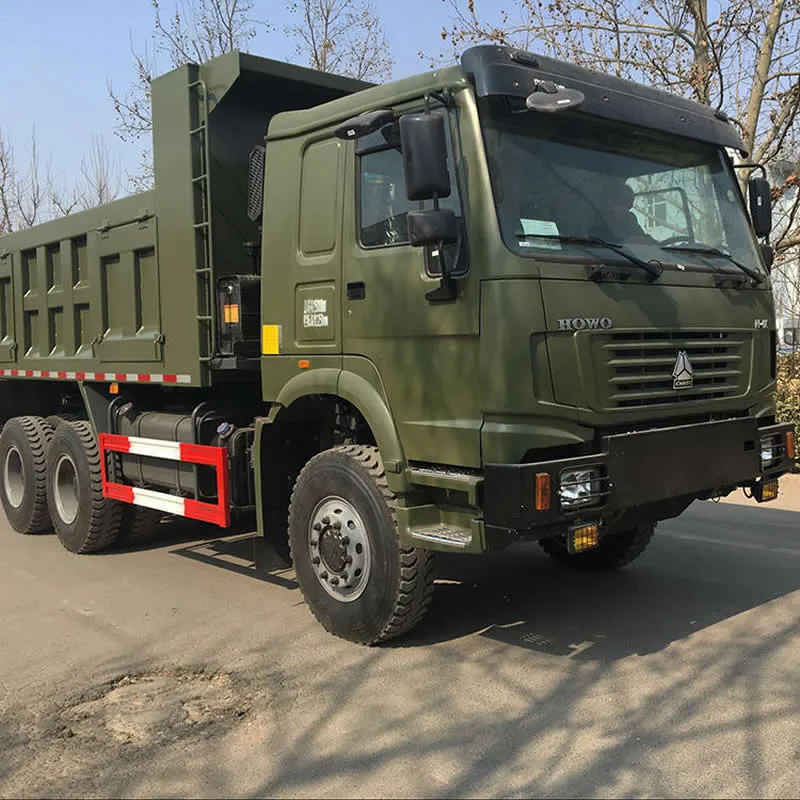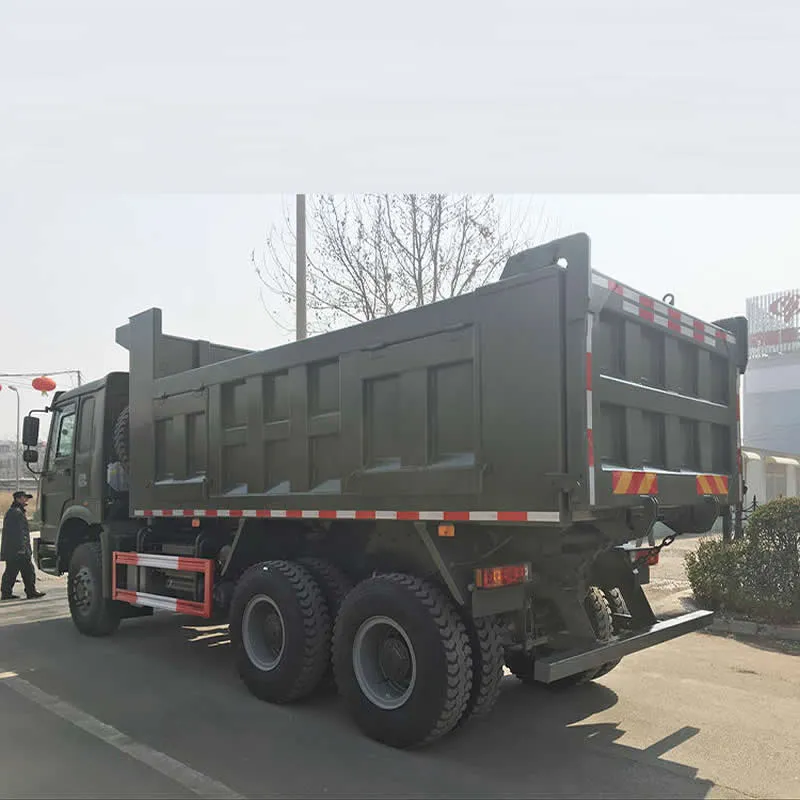Dump trucks, as important transportation equipment in engineering machinery, are widely used in construction, mining, ports, and some factories. However, the operating environment of dump trucks under different climatic conditions has varying impacts on their performance and safety. In extreme high or cold weather, drivers and maintenance personnel need to pay special attention to the operation and maintenance of dump trucks to ensure that the equipment operates efficiently and safely.

In high-temperature weather, dump trucks face many challenges, mainly manifested in engine overheating, excessive hydraulic system pressure, and lubricant failure. The following are precautions that require special attention:
1.1 Engine Temperature Control
At high temperatures, engines are prone to overheating, leading to performance degradation or damage. To prevent engine overheating, the radiator should be checked regularly to ensure the cooling system is unobstructed, the coolant level is sufficient, and the fan is checked for proper functioning. High viscosity index engine oil (such as 15W-40) should be used to avoid oil film rupture and wear; a heat insulation layer should be installed on the fuel lines to prevent vapor lock.
If necessary, high-temperature anti-condensing coolant can be used to improve heat dissipation efficiency. The coolant level should be maintained between the MIN and MAX lines, and the water temperature should be monitored every 2 hours (if >95℃, immediately stop the machine and allow it to idle to cool down). Regularly clean the water tank of willow catkins and dust to ensure efficient heat dissipation.
1.2 Hydraulic System Pressure Excessive
High temperatures can reduce the viscosity of hydraulic oil, thus affecting the performance of the hydraulic system. When using a dump truck in high-temperature environments, select hydraulic oil suitable for high-temperature environments and regularly check the hydraulic system pressure to ensure the system operates within a safe range.
When the hydraulic oil temperature exceeds 80℃, suspend lifting and check for expansion and leakage in the oil pipes. Avoid continuous unloading during high-temperature periods to prevent aging of seals.
1.3 Lubricating Oil and Engine Oil Inspection
Under high-temperature conditions, lubricating oil and engine oil are prone to excessive oxidation, thus reducing their lubricating effect. Therefore, it is necessary to regularly check the quality of engine oil and lubricating oil and replace them promptly. In addition, consider using lubricating oil with strong high-temperature adaptability to ensure smooth operation of all moving parts.
1.4 Tire Temperature Management
High temperatures accelerate tire wear and may cause tire overheating or even bursting. Drivers should regularly check tire pressure and avoid prolonged heavy-duty operations in high-temperature environments.
Lower tire pressure by 10% (e.g., 8 bar → 7.2 bar), remove stones from tire treads; park in a shady place every 4 hours to allow for natural cooling, do not pour water on to cool the tires quickly.
1.5 Vehicle Cooling System Inspection
The performance of the engine cooling system is crucial at high temperatures. In addition to regularly checking the coolant level and quality, pay attention to cleaning the radiator to prevent dust or debris from clogging the cooling channels and ensure effective heat dissipation.
1.6 High-Temperature Fire Safety
The transportation of flammable goods (chemicals, fuels) should avoid the high-temperature period of 10:00-16:00. All ventilation vents in the cargo compartment should be fully open, and two 4kg dry powder fire extinguishers should be provided. Electronic equipment should be protected with sunshades and ice packs; the cargo compartment temperature should be ≤40℃.

In cold environments, dump trucks face challenges including difficulty starting the engine, excessively viscous hydraulic oil, and fuel freezing. The following are precautions for cold weather:
2.1 Engine Preheating and Antifreeze
In cold environments, the viscosity of engine oil and coolant increases, potentially making engine starting difficult. To prevent the engine from freezing, use engine oil with strong low-temperature adaptability and preheat it before starting to ensure good oil flow. Additionally, an electric heater can be used to heat the coolant.
If possible, switch to -35# diesel fuel to prevent solidification. Switch to winter-grade hydraulic oil and gear oil to prevent low-temperature solidification that could lead to pump and valve failure. Use low-temperature grease to prevent steering/transmission system jamming.
2.2 Hydraulic Oil Selection
At low temperatures, the viscosity of hydraulic oil increases significantly, affecting the efficiency of the hydraulic system. Therefore, choose low-temperature adapted hydraulic oil to ensure smooth system operation in cold conditions. If the hydraulic system temperature is too low, heating measures should be taken to prevent excessive oil viscosity from causing operational difficulties.
2.3 Fuel Issues
In cold environments, diesel fuel may solidify, leading to limited fuel supply. To prevent solidification, use low-temperature-grade fuel or add antifreeze to the fuel. Additionally, ensure the fuel tank and fuel lines are kept clean to prevent blockages.
2.4 Battery Management
Battery performance is significantly affected by low temperatures, especially on cold mornings, where starting current may be insufficient. Therefore, regularly check the electrolyte level, maintain a good charge, and ensure the battery is free from corrosion. Insulate the battery and keep it fully charged. Wrap electrical wiring with antifreeze material to prevent low-temperature cracking and short circuits.
2.5 Tires and Braking System
Cold weather easily causes tire hardening and wear, especially tires exposed to low temperatures for extended periods. Therefore, drivers using dump trucks in cold conditions should regularly check tire pressure and ensure the braking system's sensitivity to prevent brake failure due to freezing.
Regularly inspect all vehicle systems and promptly replace parts susceptible to temperature changes.
Select appropriate lubricating oil, hydraulic oil, and coolant based on the ambient temperature to ensure proper system operation.
Preheat and insulate the vehicle in advance, especially in cold weather, to prevent mechanical failures caused by excessively low temperatures.
Drivers should constantly monitor the vehicle's condition, avoid overloading, and minimize prolonged continuous operation in harsh weather conditions.
These meticulous maintenance and operational measures can effectively ensure the stable operation of dump trucks in extreme weather conditions, extend their service life, and ensure operational safety and efficiency.
If you have any further questions about precautions for operating dump trucks, or if you wish to purchase dump trucks and spare parts, please contact us.